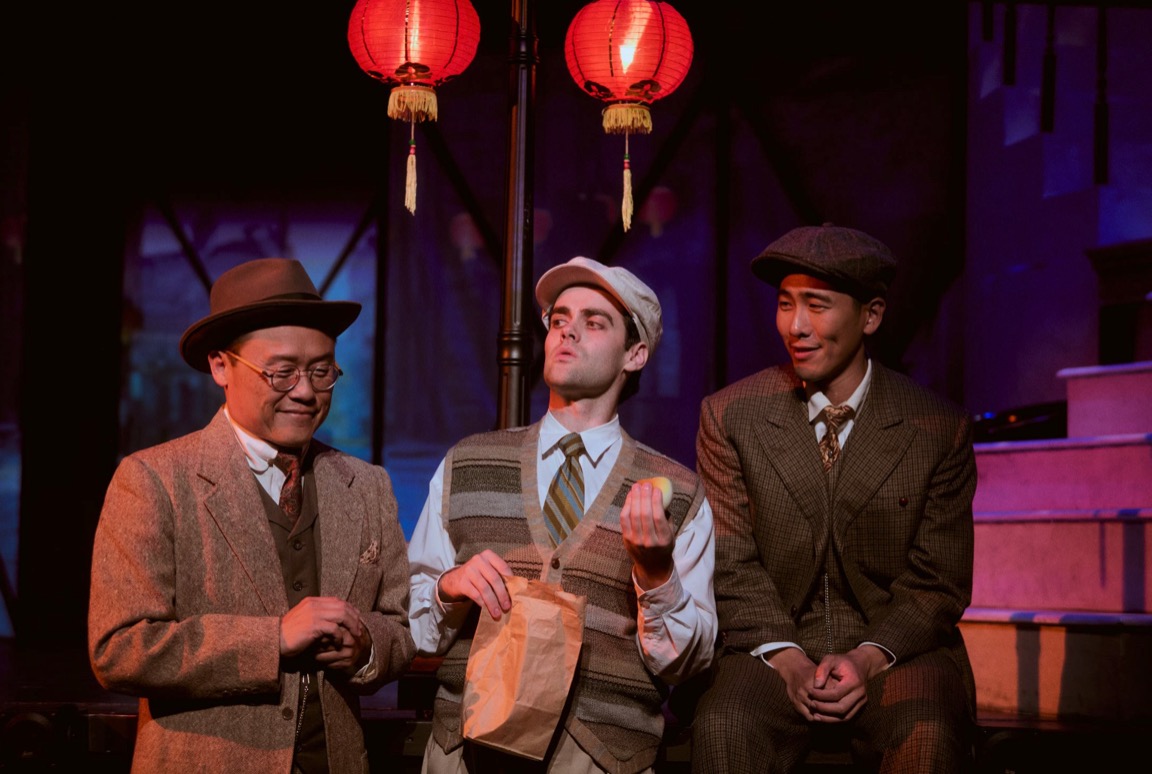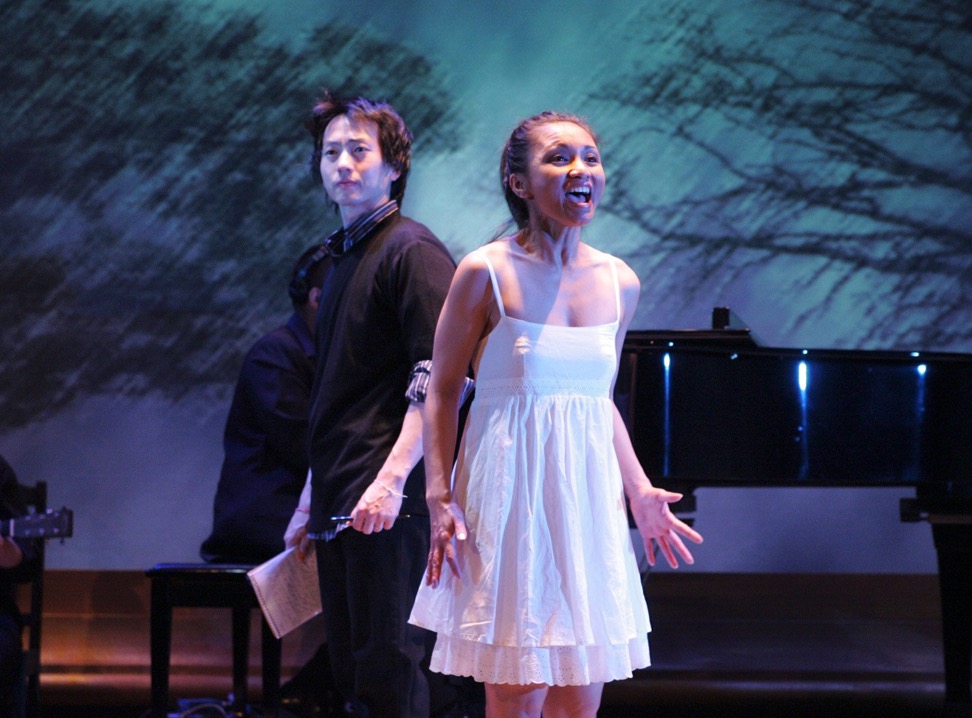Comments
GELFAND'S WORLD - The East West Players is a theater company which describes itself as "the longest running Asian American theater in the nation." It has a theater right around the corner from Little Tokyo, almost in the shadow of City Hall. It's gotten positive press coverage over its performance of the play Unbroken Blossoms, which completed its premiere run over the weekend. The play deals with the effect of bigotry on the Chinese American community here in Los Angeles in 1919. The astute reader will note that the idea of the play has resonance with the candidacy of Kamala Harris, considering the rank prejudice that greeted her Vice Presidency in some quarters. Experiencing the performance reminded one that there is, even now, anti-Asian prejudice in this country, including hatred that has been stirred up by the Trump faction over the past several years.
I was attracted to the idea of the Unbroken Blossoms storyline because it matches my own interest in early film, particularly the development of film out here in Los Angeles. There was one other link, which is that this play is a fictionalized account of the production of the D.W. Griffith film Broken Blossoms. The historical context is that Griffith had become famous and infamous through his creation of the film Birth of a Nation. Made right here in Los Angeles, that film was ostensibly about the pre-Civil-War south, the assassination of Lincoln, and the post-Civil-War reconstruction era. In reality, it is directly racist, featuring the trope of dangerous Black Men endangering the purity of southern white women and trying to take over government, among other racist claims. This film has been credited with inspiring the rebirth of the modern Ku Klux Klan.

Griffith was unhappy with the beating he took in the press and in various levels of local governments. The idea underlying Unbroken Blossoms is that Griffith is trying to respond to the criticism by making a film about an inter-racial relationship between a Chinese man and a young white girl. In the play, Griffith is proud that he will be breaking ground on a subject that had been unheard of in American film previously.
It turns out that Griffith hired a couple of Chinese American men to serve as consultants regarding Chinese culture and practices. Little is actually known of these men, so author Phiip W. Chung used the sketchy historical background to fashion a fiction about the experience and effects of racial prejudice.Gavin Kawin Lee was a serviceable James Leong, and Ron Song was a particularly effective Moon Kwan. Arye Gross played Griffith as a bitter man with chronic financial troubles who goes into alcoholic rages. Alexandra Hellquist was particularly effective as Griffith's female lead, Lillian Gish. Conlan Ledwith worked at developing the character of Griffith's leading man Richard Barthelmess, who I remember from dozens of films as being a rather unremarkable character most of the time. Ledwith portrays the character as trying to mimic Asian characteristics, and in so doing overdoing things to the extreme.
Hellquist doubled as another woman identified as Gilda, who enters an interracial relationship with James Leong, ultimately provoking the near-fatal beating of Moon Kwan, who is misidentified as the Chinese man who is having an affair with a white woman.
The play spends a lot of time dealing with the guilt felt by the Chinese men simply for provoking the violence of the white culture, only later to verbalize the realization that the victims should learn not to feel guilty for their own victimization.
Perhaps we shouldn't put too many demands on the play in terms of this month's current events. The prejudice and bigotry in America at the time of Griffith's film career were the prevailing and widely accepted norm for many Americans. It is of note that even the congressional Republicans have been advising their followers to tone down the racist and misogynistic attacks on Harris this time around. Bigotry still exists, but it is less publicly acceptable than it once was.

There is another concept -- that sometimes genius combines with substantial character flaws -- that is quietly present in this play. We get to hear Griffith talk about directing and we see him elicit a remarkable performance from Lillian Gish in one scene of this play. The idea of a film director working an actress to exhaustion in order to get a particularly strong performance wasn't unique with Griffith, as the scholars of director Yasojiro Ozu will point out, but the play develops this idea convincingly. Still, the combination of the character flaw with artistic genius is a complication that sensitive film-goers and lovers of Wagnerian opera alike have to deal with.
(Bob Gelfand writes on science, culture, and politics for CityWatch. He can be reached at [email protected].)






